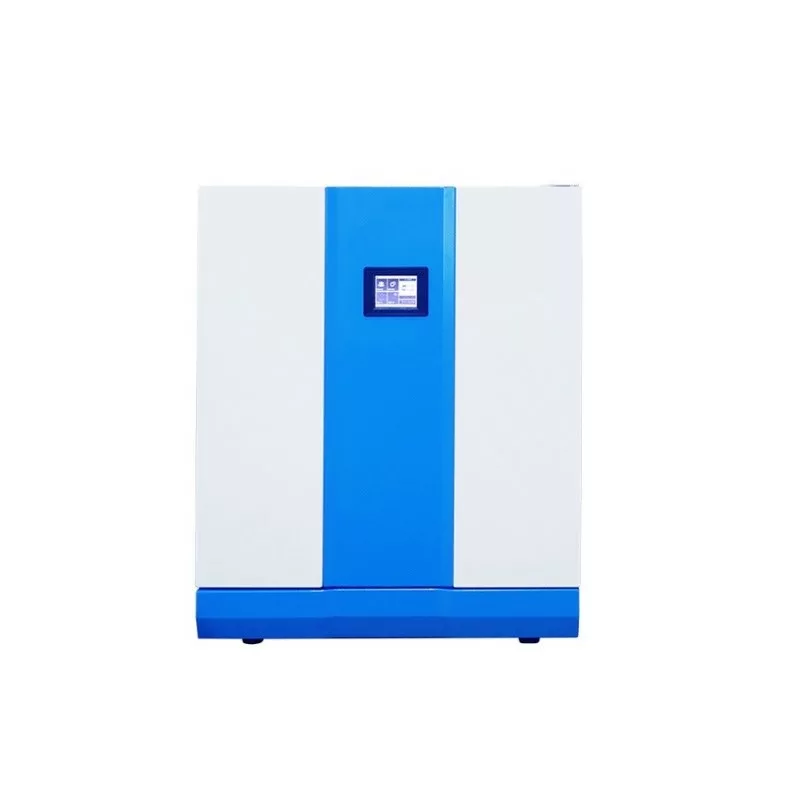The Power of a Touch Screen Constant Temperature Incubator KTI/160/T2
In the realm of scientific research, consistency is key. Touch Screen Constant Temperature Incubator KTI/160/T2 is a crucial asset for any laboratory that requires precise and stable temperature control to ensure the optimal growth, development, and preservation of sensitive samples. From microbiology and pharmaceuticals to food science and environmental studies, these incubators play a pivotal role in delivering reliable results. This guide will explore the essential features, benefits, and applications of constant temperature incubators, helping you select the perfect model for your laboratory needs.
What is a Constant Temperature Incubator?
A constant temperature incubator, often referred to as a laboratory incubator or heat-only incubator, is a specialized device designed to maintain a stable temperature environment for biological samples, chemical reactions, and other temperature-sensitive processes. Unlike general-purpose incubators that might offer additional environmental controls like humidity or CO2, constant temperature incubators focus solely on providing precise temperature regulation. This precision is vital for experiments where even minor temperature fluctuations can affect the integrity of results, such as in microbial cultures, cell growth, or biochemical assays.
Key Features of Touch Screen Constant Temperature Incubator KTI/160/T2
- Accurate Temperature Control: The primary feature of a constant temperature incubator is its ability to maintain a consistent temperature, typically within a narrow range of variation (often as precise as ±0.1°C). This accuracy is essential for experiments that demand stable conditions to ensure reliable and reproducible outcomes.
- Uniform Heat Distribution: These incubators are equipped with advanced heating systems and fans to ensure uniform heat distribution throughout the chamber. This even distribution eliminates hot or cold spots, ensuring that all samples are exposed to the same conditions.
- Programmable Temperature Settings: Many modern constant temperature incubators come with programmable controls, allowing users to set specific temperature profiles over time. This feature is particularly useful for experiments that require gradual temperature changes or specific incubation periods.
- High-Quality Insulation: To maintain temperature stability, constant temperature incubators are built with high-quality insulation that minimizes heat loss. This ensures that the internal environment remains unaffected by external temperature fluctuations.
- User-Friendly Interface: With digital displays and intuitive controls, these incubators allow for easy monitoring and adjustment of temperature settings. Advanced models may also offer data logging capabilities, enabling researchers to track temperature over time.
- Safety Features: Constant temperature incubators are often equipped with safety features such as over-temperature alarms, automatic shut-off systems, and door locks to protect samples and ensure safe operation.
Benefits of Using a Touch Screen Constant Temperature Incubator KTI/160/T2
- Enhanced Experimental Accuracy: The ability to maintain a stable temperature environment is crucial for experiments that require precise conditions. By minimizing temperature fluctuations, constant temperature incubators help ensure the accuracy and reliability of your results.
- Versatility Across Applications: While these incubators are particularly favored in microbiology and cell culture, they are also widely used in a variety of fields, including pharmaceuticals, environmental testing, and food science, making them versatile tools for numerous laboratory applications.
- Improved Reproducibility: Consistent temperature control is essential for reproducibility in scientific research. Constant temperature incubators allow researchers to replicate experimental conditions precisely, ensuring that results can be consistently reproduced.
- Increased Efficiency: With programmable settings and reliable temperature maintenance, constant temperature incubators enable more efficient management of experiments, freeing up time for other tasks.
- Long-Term Stability: For long-term studies or storage, constant temperature incubators offer the stability needed to maintain sample integrity over extended periods, which is crucial for research that spans days, weeks, or even months.
Applications of Constant Temperature Incubators
- Microbiological Research: In microbiology, constant temperature incubators are used to grow and maintain bacterial cultures under controlled conditions. This is essential for studying microbial growth patterns, antibiotic resistance, and more.
- Cell and Tissue Culture: In cell biology, these incubators provide the stable temperature environment required for the growth and maintenance of cell lines and tissues, making them indispensable in research and medical laboratories.
- Pharmaceutical Testing: Constant temperature incubators are used in the pharmaceutical industry for stability testing, where drugs and other products are subjected to consistent temperature conditions to assess their shelf life and effectiveness.
- Food and Beverage Testing: In food science, these incubators are used for testing the stability and safety of food products under controlled temperature conditions, ensuring they meet regulatory standards.
- Environmental Studies: For environmental research, constant temperature incubators allow scientists to simulate specific temperature conditions to study the effects on various organisms or to assess the behavior of materials in different climates.
- Biochemical Reactions: In biochemical laboratories, these incubators provide the precise temperature control needed for enzyme reactions, protein crystallization, and other biochemical processes.
Choosing the Right Constant Temperature Incubator
When selecting a constant temperature incubator, consider the specific needs of your laboratory. Key factors include the temperature range and accuracy required, chamber size, ease of use, safety features, and whether you need advanced functions like programmable settings or data logging. It’s also important to consider the quality of the insulation and the reliability of the heating system to ensure long-term stability and performance. Consulting with manufacturers or experts can help you identify the best model for your specific applications.
Conclusion
A constant temperature incubator is a critical investment for any laboratory that requires precise and stable temperature control. Whether you’re conducting research in microbiology, cell culture, pharmaceuticals, or food science, these incubators provide the consistent environment needed to achieve accurate, reliable, and reproducible results. By choosing a high-quality constant temperature incubator, you can enhance the efficiency and effectiveness of your experiments, ensuring the success of your research endeavors.
For expert advice on selecting the ideal constant temperature incubator for your lab, contact our team today.





Reviews
There are no reviews yet.